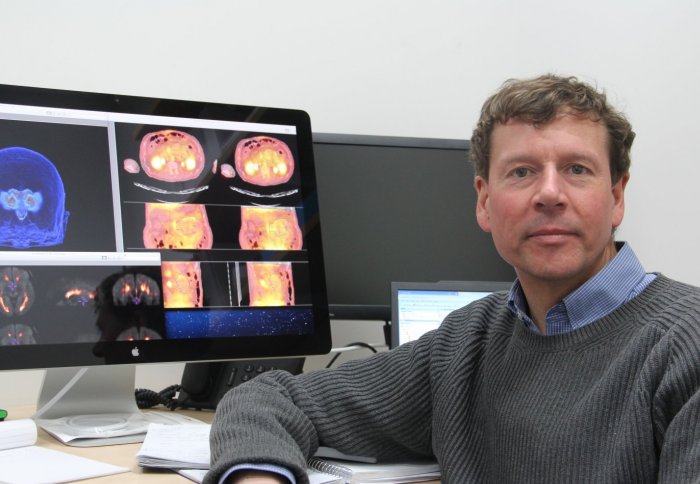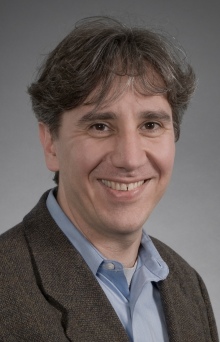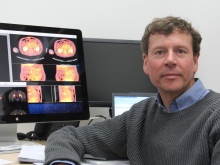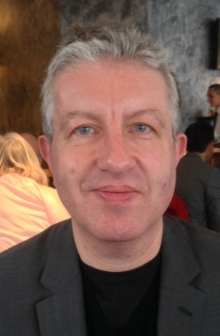Six Imperial researchers become Fellows of the Academy of Medical Sciences

Six Imperial academics have been elected to the Fellowship of the Academy of Medical Sciences for their contributions to advancing medical science.
Academy fellows are recognised for their exceptional contribution to and excellence in medical research. Fellowship of the academy acknowledges original discoveries and innovative application of scientific knowledge that brings about advances in human health and welfare.
This year the Academy has recognised 44 researchers from across the UK, and six of those experts are based at Imperial College London. The new Fellows – Professor Majid Ezzati, Professor Sebastian Johnston, Professor Paul Matthews, Professor Dudley Pennell, Professor Nadia Rosenthal, and Professor William Wisden, will be formally admitted to the Academy at a ceremony on Wednesday 2 July 2014.
Professor Majid Ezzati
 Majid Ezzati is Chair in Global Environmental Health in the School of Public Health. His research focuses on how preventable risk factors and health care influence health and health inequalities around the world. He has produced leading work on air pollution, obesity and cardio-metabolic risks, and his findings have provided the empirical evidence for setting global and national targets and policies.
Majid Ezzati is Chair in Global Environmental Health in the School of Public Health. His research focuses on how preventable risk factors and health care influence health and health inequalities around the world. He has produced leading work on air pollution, obesity and cardio-metabolic risks, and his findings have provided the empirical evidence for setting global and national targets and policies.
Professor Majid Ezzati said: “I am delighted and privileged to join the many Fellows of the Academy whose work has helped shape mine over the years. I hope that I can contribute to the Academy’s mission in science, in mentoring the future generations of researchers, and in informing and influencing policy.”
Professor Sebastian Johnston
 Sebastian Johnston is Professor of Respiratory Medicine and Allergy in the National Heart and Lung Institute. His pioneering work in respiratory infection has helped identify the mechanisms by which viruses exacerbate asthma and chronic obstructive pulmonary disease, through infecting the lower respiratory tract and causing inflammation. These discoveries have led to innovative therapeutic approaches, including the recent development of an inhaled medication to prevent and treat these virus-induced exacerbations of asthma. Professor Johnston is Director of the MRC and Asthma UK Centre in Allergic Mechanisms of Asthma at Imperial and King’s College London, and was editor of the prestigious journal Thorax for seven and half years until 2010.
Sebastian Johnston is Professor of Respiratory Medicine and Allergy in the National Heart and Lung Institute. His pioneering work in respiratory infection has helped identify the mechanisms by which viruses exacerbate asthma and chronic obstructive pulmonary disease, through infecting the lower respiratory tract and causing inflammation. These discoveries have led to innovative therapeutic approaches, including the recent development of an inhaled medication to prevent and treat these virus-induced exacerbations of asthma. Professor Johnston is Director of the MRC and Asthma UK Centre in Allergic Mechanisms of Asthma at Imperial and King’s College London, and was editor of the prestigious journal Thorax for seven and half years until 2010.
Professor Sebastian Johnston said: "I am delighted and humbled to have been chosen to join such exalted company. It is a very great honour."
Professor Paul Matthews
 Professor Paul Matthews is Head of the Division of Brain Sciences. He has helped to develop innovative ways of using clinical imaging, to understand the way the brain functions and to develop new medical therapies. Much of his work has addressed the challenge of brain degeneration in Multiple Sclerosis (MS) and enhancing intrinsic brain repair and plasticity to enable the brain to recover its function. Recent work is focusing on extension of these methods to studies of large populations, to better understand disease risk factors. In 2008 Professor Matthews was awarded an OBE for services to neuroscience.
Professor Paul Matthews is Head of the Division of Brain Sciences. He has helped to develop innovative ways of using clinical imaging, to understand the way the brain functions and to develop new medical therapies. Much of his work has addressed the challenge of brain degeneration in Multiple Sclerosis (MS) and enhancing intrinsic brain repair and plasticity to enable the brain to recover its function. Recent work is focusing on extension of these methods to studies of large populations, to better understand disease risk factors. In 2008 Professor Matthews was awarded an OBE for services to neuroscience.
Professor Paul Matthews said: “I am honoured to be joining the Fellowship of the Academy of Medical Sciences and look forward to the opportunity it provides for me to contribute more to the development of medicine in the UK. I feel that I am sharing this achievement with the many students, post-docs, fellows and collaborators who joined me in creating the science on which it is based- and in making the task so much fun!”
Professor Dudley Pennell
 Dudley Pennell is Professor of Cardiology in the National Heart and Lung Institute. He has developed a new diagnostic method for sickle cell disease (thalassaemia) based on quantifying the iron overload in the heart muscle. Many sickle cell patients are now alive and well because of his ground-breaking contributions.
Dudley Pennell is Professor of Cardiology in the National Heart and Lung Institute. He has developed a new diagnostic method for sickle cell disease (thalassaemia) based on quantifying the iron overload in the heart muscle. Many sickle cell patients are now alive and well because of his ground-breaking contributions.
He is interested in using Cardiovascular Magnetic Resonance (CMR) as a research tool and also in clinical practice. His research has investigated the assessment and differentiation of heart muscle disease, the measurement of iron in heart muscle and the early detection and assessment of the clogging up of arteries.
Professor Nadia Rosenthal
 Professor Nadia Rosenthal holds a Chair in Cardiovascular Science in the National Heart and Lung Institute and she is a world leader in the field of regenerative medicine.
Professor Nadia Rosenthal holds a Chair in Cardiovascular Science in the National Heart and Lung Institute and she is a world leader in the field of regenerative medicine.
Professor Rosenthal’s genetic research explores how growth factors, stem cells and the immune system play a role in tissue regeneration. Her work has led to developments in innovative cell-based treatments for muscle ageing and heart disease.
Professor Rosenthal said: "I am deeply honoured to join my colleagues as a Fellow of this prestigious Academy, which serves to enhance connections between medical scientists across the country. I am sure this Fellowship will inspire many fruitful collaborations."
Professor William Wisden
 William Wisden is Professor of Molecular Neuroscience in the Department of Life Sciences. Throughout his career Professor Wisden has made numerous advances in understanding ion channels and neurotransmitter receptors, to help explain how the human brain functions. As a result of his pioneering research, he is among the most widely cited neuroscience experts in the world. He is currently investigating the neural circuitry involved in the control of sleep and is interested in understanding the biochemical basis of how and why we go to sleep. This involves studying a key region of the brain called the hypothalamus, which is a structure containing a cocktail of neurotransmitters involved in controlling the sleep-wake cycle.
William Wisden is Professor of Molecular Neuroscience in the Department of Life Sciences. Throughout his career Professor Wisden has made numerous advances in understanding ion channels and neurotransmitter receptors, to help explain how the human brain functions. As a result of his pioneering research, he is among the most widely cited neuroscience experts in the world. He is currently investigating the neural circuitry involved in the control of sleep and is interested in understanding the biochemical basis of how and why we go to sleep. This involves studying a key region of the brain called the hypothalamus, which is a structure containing a cocktail of neurotransmitters involved in controlling the sleep-wake cycle.
William Wisden said: “I am delighted to be honoured with this award. My research has always been a team endeavour and I would like to thank all the wonderful past and present students, postdocs and collaborators who I have worked with and who have done so much to contribute.”
Article supporters
Article text (excluding photos or graphics) © Imperial College London.
Photos and graphics subject to third party copyright used with permission or © Imperial College London.
Reporter
Franca Davenport
Communications and Public Affairs